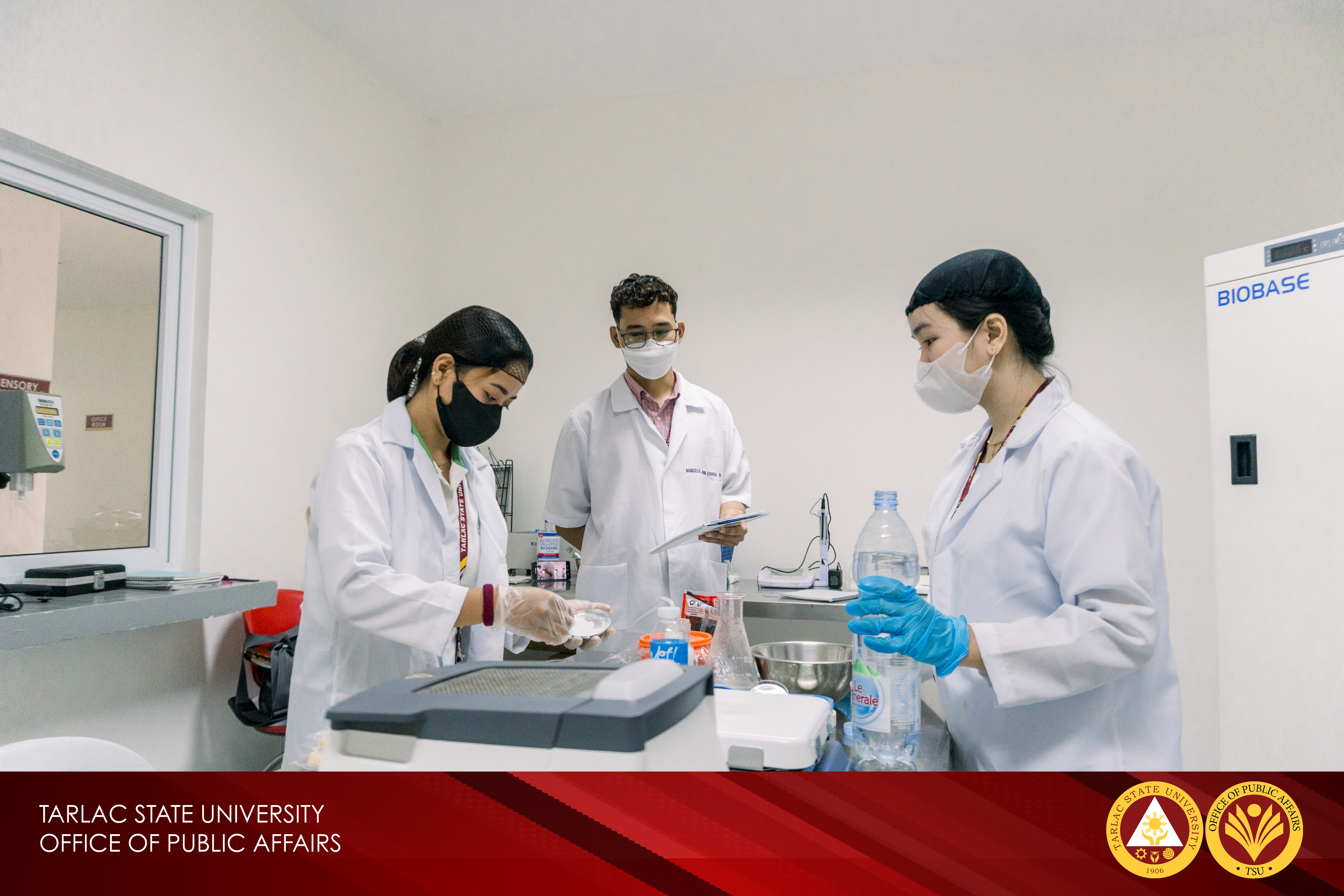Tarlac State University's Food Technology and Research Center (FTRC) at the Lucinda Campus opened its doors to BS Food Technology (BSFT) students for the first week of in-person classes that started on September 6, 2022 (Tuesday).
The FTRC is a shared facility for laboratory courses in Food Technology, Hospitality Management, and Technology and Livelihood Education. It is the center's first time entertaining students for their classes since its formal inauguration in January 2021.
According to FTRC Director Prof. Leah T. Matias, the center first coordinated with the College of Science for the class schedules to prepare the needed rooms and laboratories. The center and college also devised health and safety protocols by strategically placing handwash and alcohol stations.
Second-year BSFT student Fatima Lya Eslabra said it was better to have in-person laboratory classes rather than online.
“Mas challenging po and exciting po pala kapag face-to-face ‘yung [laboratory class] po namin. Mas mahirap po siyang intindihin through virtual (sessions) compared sa on-the-spot na nakikita mo na. Challenging din po ‘yung balancing and exact measurement ng substance para po magkaroon kami ng perfect outcome,” she said.
Meanwhile, Jackileyn Lingat, also a second-year BSFT student, faces a different kind of challenge as a single mother to her five-year-old child. She said adjusting to face-to-face classes is a bit different for her compared to her classmates.
“Kailangan ko pa pong i-prepare ‘yung gamit ng anak ko sa pagpasok po niya sa kindergarten. Kailangan ko pong magising ng 4:00 AM dahil sa travel. Medyo malayo po kami – sa Care po. Buti na lang po marunong na siyang maligo, magbihis ng sarili niya. Tinuruan ko po,” she said.
Despite this, she is still excited to have face-to-face classes.
BSFT faculty member Mr. Jhan Ervin Marcelo observed that in-person laboratory classes are more beneficial for students as he facilitated his class. According to him, he is happy to teach in-person classes again.
“Iba po ‘yung feeling. Kapag online, parang mahirap mag-reach out sa mga estudyante. Hindi mo alam kung nakikinig ba sila… Unlike sa face-to-face (classes) na natututukan ko sila and mas nabibigay ko ‘yung full potential ko para i-share ‘yung knowledge na kailangan i-impart po sa kanila,” Mr. Marcelo said.
“Kanina halos nagtagal kami sa unang grupo. Hindi ko po in-expect kasi po kahit gaano ko i-explain sa kanila online (before), iba pa din po ‘yung sila ‘yung humahawak mismo ng apparatus and device,” he added.
In a previous meeting with his class, Mr. Marcelo said he gave proper instructions and orientation for their activity. He gave a refresher about laboratory safety policies and university rules and regulations, including appropriate attire.
“Napakasaya po na natututunan nila physically and naa-apply po nila ‘yung mga tinuturo sa lectures. Hopefully, magtuloy-tuloy na po itong ating setup nang sa ganoon po ay maibigay po natin ‘yung 100% na maituturo sa mga estudyante. And in the future, maging globally competitive professionals po sila. ‘Yun po ‘yung goal,” he finished.
While Dir. Matias shares the same sentiments with the students about their in-person laboratory classes, she would also like to remind them about the strict observance of the university's health and safety protocols.
"Everything is already provided for them. So better yet, mag-enjoy sila sa mga learnings. Make the most out of it – 'yung mga available na facilities and even other equipment for their undertakings lalo na sa research. Since ongoing pa din 'yung observance natin sa implementation of health protocols, they should be observant enough. Actually, it's not only for themselves but also others na probably pwede pa ding ma-infect," she said during the interview.
Moreover, Dir. Matias said that the FTRC also accommodates other BSFT students doing their thesis or research and on-the-job training (OJT). Students are given alternating schedules to ensure that close contact will be minimized.








